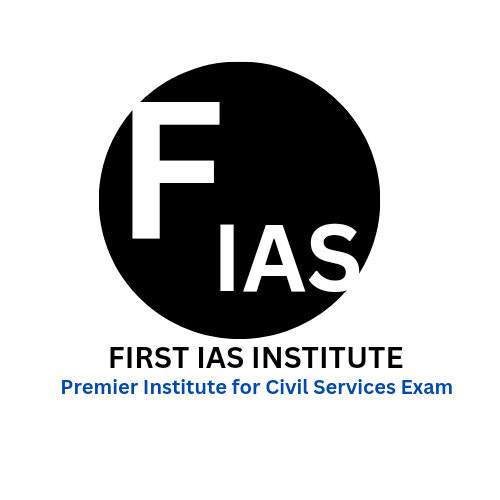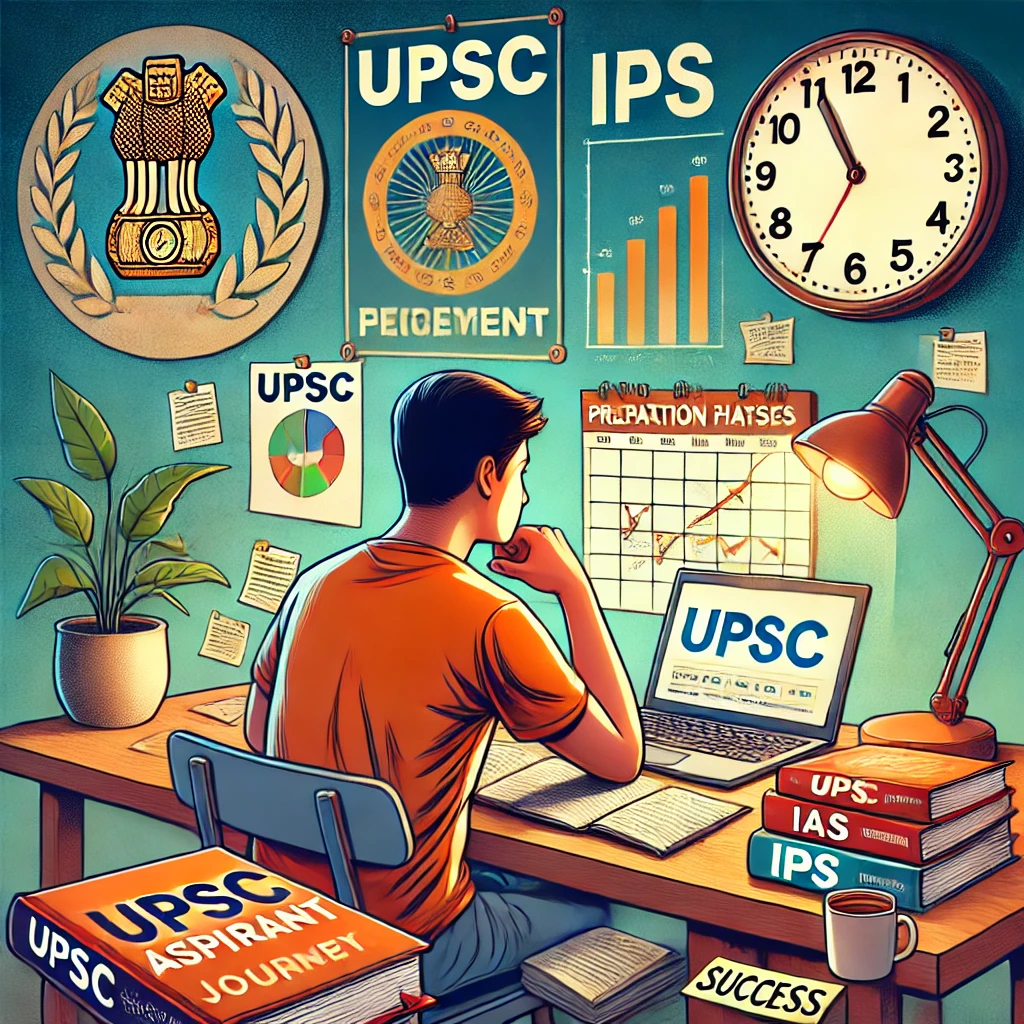What is the Right Time to Start UPSC Preparation?
The Union Public Service Commission (UPSC) Civil Services Examination (CSE) is one of the toughest and most prestigious exams in India. Every year, thousands of aspirants compete for a few hundred coveted positions in the Indian Administrative Service (IAS), Indian Police Service (IPS), Indian Foreign Service (IFS), and other central services. Given its vast syllabus and highly competitive nature, one of the most common questions among aspirants is: When is the right time to start UPSC preparation?
The answer to this question depends on various factors such as an individual's academic background, familiarity with the syllabus, and the amount of time available for study. However, a general guideline can be established based on different stages of education and career.
Join WhatsApp community for Free Notifications, Updates, Study Material, Mock Tests, Internship Updates, and Current Affairs - CLICK HERE TO JOIN
Starting UPSC Preparation During School (Class 9–12)
Some students start their UPSC journey as early as high school. While it may seem too early, building a strong foundation in subjects like history, geography, polity, and economics can be beneficial. Here’s how school students can prepare:
- Read NCERT Books: Focus on NCERT textbooks from Class 6 to 12, as they form the backbone of UPSC preparation.
- Develop a Reading Habit: Regularly read newspapers like The Hindu or The Indian Express to stay updated on current affairs.
- Improve Writing Skills: Develop analytical writing skills by practicing essays and answers on various topics.
- Enhance General Knowledge: Participate in quizzes, debates, and discussions on current affairs.
While school students should not focus entirely on UPSC, building a habit of reading, writing, and analyzing issues can help them immensely in the long run.
To Enroll in FIRST IAS INSTITUTE - Click Here
Starting UPSC Preparation During Graduation
For many aspirants, college is the ideal time to start serious UPSC preparation. Here’s why:
- More Time for Self-Study: College students usually have fewer responsibilities compared to working professionals, allowing them to dedicate more time to UPSC preparation.
- Access to Resources: Universities often have libraries, discussion groups, and mentors who can help in preparation.
- Option to Choose the Right Optional Subject: Selecting an optional subject related to one's graduation field can provide an advantage.
- Parallel Preparation: Students can balance their college syllabus with UPSC preparation by incorporating NCERT books, standard reference books, and newspaper reading into their routine.
Strategy for College Students:
- First Year: Focus on understanding the UPSC syllabus, reading NCERT books, and staying updated with current affairs.
- Second Year: Start reading standard reference books such as Laxmikanth for Polity, Spectrum for Modern History, and Ramesh Singh for Economics.
- Third Year: Begin practicing answer writing and attempting mock tests to develop speed and accuracy.
- Final Year: Revise the syllabus thoroughly and start preparing for Prelims and Mains in an exam-oriented manner.
Starting UPSC Preparation After Graduation
Many aspirants start their UPSC journey after completing their degree. If you begin after graduation, here’s what you need to keep in mind:
- Dedicated Time: If you are preparing full-time, you need at least one year of focused preparation.
- Comprehensive Study Plan: Follow a well-structured study plan covering Prelims, Mains, and Interview preparation.
- Answer Writing Practice: Develop writing skills early by solving previous years’ question papers and attempting mock tests.
- Optional Subject Selection: Choose an optional subject based on interest and availability of study material.
- Join a Test Series: Regular mock tests can help identify weaknesses and improve time management.
Join WhatsApp community for Free Notifications, Updates, Study Material, Mock Tests, Internship Updates, and Current Affairs - CLICK HERE TO JOIN
Starting UPSC Preparation as a Working Professional
Many aspirants prepare for UPSC while working. Managing a full-time job and preparing for UPSC can be challenging, but with the right strategy, it is possible.
Tips for Working Professionals:
- Time Management: Utilize early mornings, evenings, and weekends for study.
- Smart Study Techniques: Focus on high-yield topics and avoid unnecessary information overload.
- Use Technology: Leverage online resources, audio lectures, and mobile apps to study on the go.
- Consistent Revision: Make concise notes for quick revision and practice previous years’ question papers.
Working professionals should aim for at least 4-5 hours of study daily and increase study hours as the exam approaches.
To Enroll in FIRST IAS INSTITUTE - Click Here
Ideal Timeframe for UPSC Preparation
While the ideal time to start varies for each individual, most aspirants require at least 12-18 months of dedicated preparation to cover the syllabus effectively. A structured timeline could look like this:
12-Month Study Plan:
- First 3 Months: Focus on NCERTs, current affairs, and basic conceptual clarity.
- Next 3 Months: Move to advanced books, cover optional subject basics, and start answer writing.
- Next 3 Months: Full-fledged Mains preparation, essay writing, and optional subject in-depth study.
- Last 3 Months: Focus on Prelims-specific revision, mock tests, and current affairs consolidation.
Join WhatsApp community for Free Notifications, Updates, Study Material, Mock Tests, Internship Updates, and Current Affairs - CLICK HERE TO JOIN
Conclusion: When Should You Start?
The right time to start UPSC preparation depends on an individual’s circumstances. If you have clarity about your goal early on, starting in school or college can provide an advantage. However, if you decide later, a focused and disciplined approach after graduation or during a job can also lead to success.
Ultimately, the best time to start is now. UPSC preparation is a marathon, not a sprint. The earlier you begin, the better your chances of mastering the vast syllabus and developing the required analytical skills. Stay consistent, remain focused, and success will follow!


 firstiasofficial@gmail.com
firstiasofficial@gmail.com
Leave a Comment